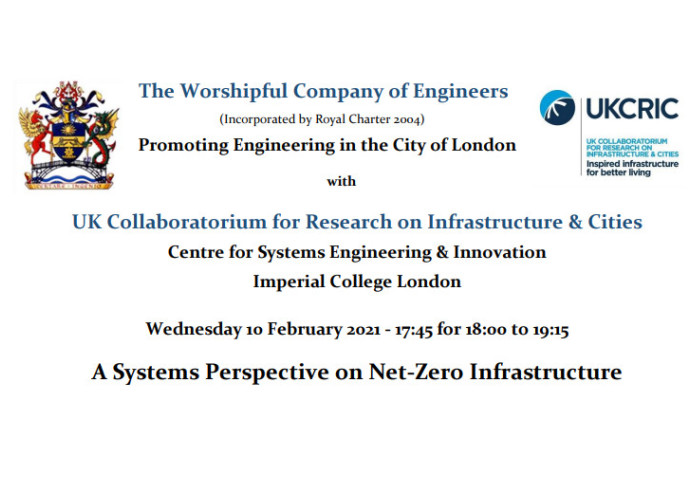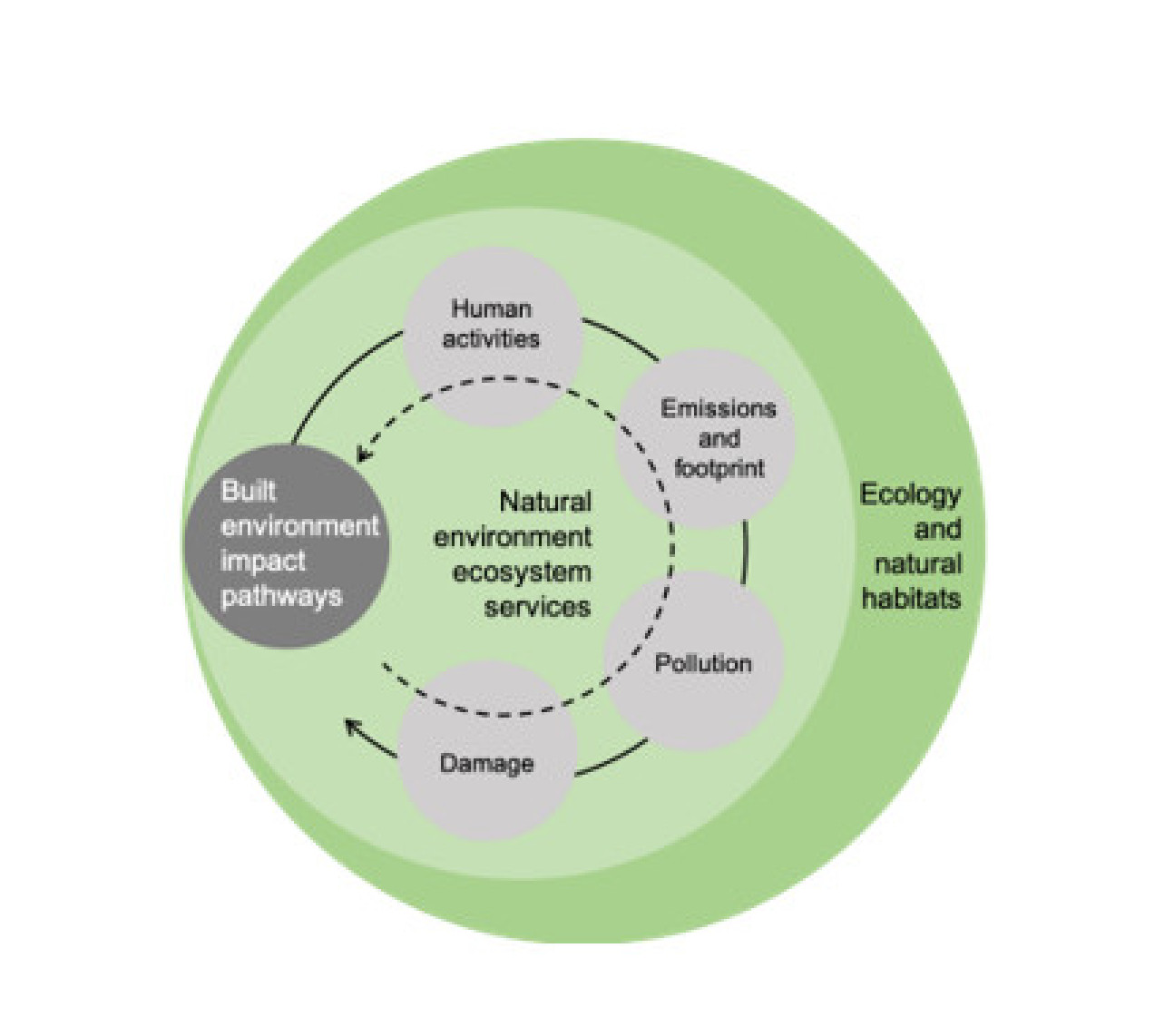A Systems Perspective on Net-Zero Infrastructure

A Systems Perspective on Net-Zero Infrastructure
On 27 June 2019 the UK became the first major economy to pass a net zero emissions law requiring that all greenhouse gas emissions are brought to net zero by 2050. The new law poses major economic, scientific and engineering challenges, and a complete transformation of the way we generate and use energy, as well as several hundred billion pounds of investment.
A large body of evidence, from both research and industry, sets out what needs to be done, and by whom, in order to reduce the infrastructure and industry’s carbon footprint. It is in this context that the webinar explored how a system approach to infrastructure and seeing infrastructure as a system of systems are key to achieving climate change mitigation and carbon reduction. This UKCRIC-sponsored event also aimed to highlight the broad challenges we face to achieve our carbon reduction and sustainability ambitions, and the significant opportunities these ambitions yield, with our distinguished speakers discussing the challenges but also the significant opportunities yielded by new sustainable approaches to infrastructure design, planning, operation and delivery.
The evening was opened by Professor Gordon Masterton, Master of the Worshipful Company of Engineers that hosted the event. Professor Masterton welcomed everyone and Dr Ana Mijic, Centre for Systems Engineering and Innovation co-Director, delivered a short opening lecture. Dr Mijic set the scene by talking about A Systemic Perspective to Net-Zero Infrastructure and about how we define infrastructure systems and Net Zero thinking. She made several important points, among which:
- The value of thinking about the systemic nature of infrastructure, which sees infrastructure as a human-centric system of systems within a broader natural environment.
- The value of thinking about the whole lifecycle and use of infrastructure.
- The need to think about systems-level solutions with respect to evaluation, operation and integration of infrastructure systems.
These points are particularly important as the way we think about infrastructure will dictate how we design, deliver and manage it, which is fundamental in terms of achieving Net-Zero. The systemic nature of infrastructure is illustrated in the figure below.

Fig. 1: Revising Net-Zero thinking from a systems perspective
The introductory talk was followed by a panel discussion chaired and moderated by Centre co-Director Professor Jennifer Whyte. Panel members were:
- Daniel JohnsFCIWEM, Head of Public Affairs, Anglian Water Services Limited.
- David Pinder, Executive Chairman, Mixergy; Lead for the Net Zero Carbon Industry Initiative, Construction Leadership Council.
- Professor Mary Ryan, Professor of Materials Science and Nanotechnology, Vice-Dean for Research, Faculty of Engineering, Imperial College.
- Dr Nick Starkey, Director of Policy, Royal Academy of Engineering
Each panellist briefly gave their perspective on what we mean by Net-Zero infrastructure and how to achieve it, touching upon the role of research, education, policy, and industry governance.
Highlights of the discussion included:
- Daniel Johns highlighted how the focus solely on carbon reduction might mean that a company needs to research and solve harmful causes rather than dealing with undesirable consequences.
- David Pinder remarked on the importance of policy and of understanding the impact of infrastructure on the user.
- From an educational point of view, Professor Mary Ryan stressed how we need to equip engineers with the freedom to imagine and the obligation to question in order to achieve a systems approach.
- Nick Starkey commented that, whilst it is right to prioritise carbon reduction, we should not lose sight of some potential unintended consequence of this.
The panel discussion was followed by an extremely interactive and engaging Q&A with the audience.
Some of the main themes that emerged from the conversation were:
- The benefits of seeing infrastructure as a system of systems.
- The role of research in establishing innovative systemic ways to plan and deliver sustainable infrastructure.
- The need to move away from silos thinking.
- The role of individuals in achieving Net-Zero.
- The re-purposing of infrastructure to reduce carbon footprint.
- The importance of understanding that the planet is our primary system so Net-Zero needs to be achieved globally.
Through a mix of academic reflection, industry and policy insights, the webinar addressed how we need to change the way we think about infrastructure if we want to reduce our carbon footprint and, more generally, achieve a Net-Zero future. The use of retrofit, the repurposing of infrastructure more in general, and the use of innovative technology such as Digital Twins can help save resources. Systems-level thinking and solutions are essential to achieving a sustainable way to think about and deliver infrastructure to the society it serves and the natural environment it impacts.
For these insights and more, watch the full webinar here.
Check our website to read more about our ambitious research programme into innovative ways to achieve sustainable and environmentally positive infrastructure.
Sign up for our Newsletter to be notified of our future events and research highlights.
For more information or to get involved in our research contact Jeni Giambona, j.giambona@imperial.ac.uk.
Article text (excluding photos or graphics) © Imperial College London.
Photos and graphics subject to third party copyright used with permission or © Imperial College London.
Reporter
Jeni Giambona
Department of Civil and Environmental Engineering